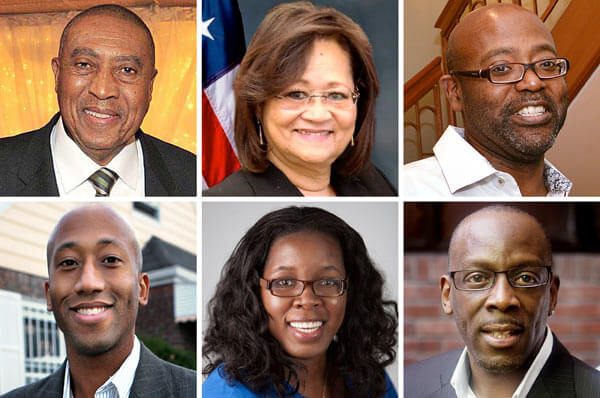By Joe Anuta
Nearly half of all the money spent in Queens City Council primaries this year has come from special interest groups, data from the city show.
Political action committees representing real estate, business or union interests have invested heavily in certain campaigns — in some races spending more than all the primary candidates combined, according to a report released last week by the city Campaign Finance Board.
“It is stunning to see that kind of spending by an outside group in a local race,” said Alex Camarda, director of public policy and advocacy at the good government group Citizens Union. “And I think it potentially undercuts the ability of the candidates to get their message across.”
The Democratic primary to replace term-limited City Councilman Leroy Comrie (D-Jamaica), for example, is rife with outside spending, according to the report.
The five contenders for Comrie’s southeast Queens spot have collectively laid out $214,719, with no one in the race spending more than $60,000 at the time the report was issued. All but one candidate is participating in the city’s public matching funds program, which is designed to encourage small donations from the community.
But four political action committees collectively spent $347,100 on just two of the hopefuls.
Jobs for New York, a pro-business PAC backed by the Real Estate Board of New York, spent $209,058 supporting Manuel Caughman and $22,048 campaigning against his opponent Clyde Vanel in the race for Comrie’s seat, the report showed.
Union interests spent a total of $138,042 in support of Daneek Miller, who is president of a bus drivers’ union. New York City Central Labor Council’s PAC spent $80,000, the United Federation of Teachers’ PAC dropped $52,823 and Empire State 32BJ SEIU’s committee spent $5,219 in support of Miller.
There is much at stake in District 27. In 2007, the city Planning Commission rezoned downtown Jamaica for denser development, and with the economy recovering there is potential for many high-profile projects.
In total, primary candidates in Queens spent about $1.3 million raised through donations. Many received public funds from the city’s 6-to-1 matching program, though participants are limited to spending a maximum of $168,000.
Political action committees, on the other hand, are subject to no such spending caps due to a 2010 Supreme Court decision called Citizens United, although the decision stipulated campaigns and the PACs cannot coordinate with each other. This is the first citywide election in the wake of the decision.
Independent spenders dropped $849,217 in Queens primaries, according to the report, constituting about 40 percent of the total money spent.
In the Democratic primary to replace embattled City Councilman Dan Halloran (R-Whitestone) in northeast Queens, the candidates spent a total of $369,531, while special interest groups nearly matched them with $312,792.
Jobs for New York dropped $220,496 in support of Paul Vallone, including cash that was used on a controversial mailer invoking the Sandy Hook Elementary shooting. Vallone himself spent $117,683, which was the largest amount in the race for the seat in District 19.
The PAC also spent $45,000 against three of Vallone’s opponents, sending out attack ads on the candidate’s behalf.
A large development of 52 homes is planned in the north of the district, and overdevelopment is a constant topic of conversation for community groups in the area.
Outside spenders had a hand in nine primaries across the borough, but the race to replace term-limited City Councilman Peter Vallone Jr. (D-Astoria) in Astoria was the third major target.
The three Democratic candidates spent a total of $198,013 in that western Queens race, while Jobs for New York spent the majority of the $154,991 in outside spending in support of Costa Constantinides and against his rivals, Gus Prentzas and John Ciafone, records show. Constantinides spent $147,000 raised through donations, while Prentzas spent $30,000 and Ciafone nothing, records show.
The amount of cash spent on smaller Council races can muddy the waters in terms of a candidate’s message, Camarda said, since voters might not expect mailers describing a particular platform to come from a political action committee.
Reach reporter Joe Anuta by e-mail at januta@cnglocal.com or by phone at 718-260-4566.




































